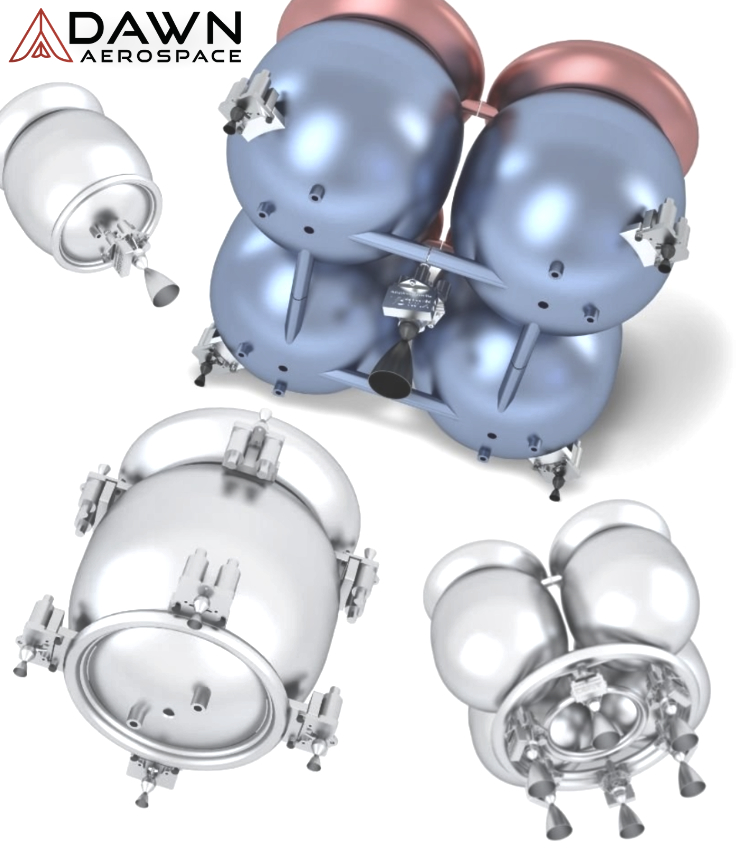

Dawn Aerospace has been awarded 1.4 million euros from the European Commission to help develop the company’s transformative ‘green’, in-space, propulsion technology.
The grant will contribute to Dawn’s continued investment in hydrazine-replacement technology. The propulsion technology will have the size and performance of a hydrazine-based system, but without the toxicity, supply chain or regulatory risk. There is currently no other option on the market that is gaining commercial traction to replace hydrazine, which in 2011, was classified by the European Commission as a substance of very high concern.
The European Investment Committee’s (EIC) Accelerator program, which awarded the grant, supports innovative European companies on their way to greater commercial success.
The European Commission is considering banning hydrazine by classifying it within REACH — Registration, Evaluation, Authorization and Restriction of Chemicals.
While other green alternatives to hydrazine have been proposed over the years, commercial traction has been limited due to high costs, performance and logistic limitations. Dawn is under contract to produce more than 200 thrusters this year for commercial clients. The company’s green, bi-propellant technology is on track to become the second most prolific chemical propulsion type in orbit, after hydrazine.
Dawn’s expertise is leading to work on much larger spacecraft, including GEO satellites, GTO to GEO transfer vehicles, as well as lunar and Mars insertion systems. The company has secured contracts with several smallsat constellation builders, including Blue Canyon’s X-SAT Saturn-class satellites, Pixxel‘s hyperspectral imaging constellation and the Indonesian Space Agency‘s (LAPAN) early-tsunami warning constellation.
Dawn Aerospace CEO, Stefan Powell, said the company’s goal is to build scalable and sustainable space technology that enables the next generation of space transportation. “As it currently stands, hydrazine is a major pain point for existing space users, and an insurmountable barrier for many would-be space ventures.”
Dawn Aerospace co-founder and Chief Revenue Officer, Jeroen Wink, said with Europe preparing to ban hydrazine, now is the time to further develop this green technology. “We were recently awarded a project by the European Space Agency (ESA) where the central requirements of that tender were that propellants were REACH compliant and not hydrazine,” he said. “Green alternatives are now taking precedence.”
Based in the Netherlands, New Zealand, and the United States, Dawn Aerospace’s mission is to enable the next generation of space users by providing dramatically more scalable and sustainable ways to access and move around in space. It is now a leading supplier of turnkey green propulsion systems for NanoSat, MicroSat, ESPA, and ESPA Grande-class satellites. Dawn is also active in reusable launch vehicle development, with an active test flight programm of the Mk-II Aurora spaceplane demonstrator, with 25+ flights complete. The company has been recognized with awards including the 2020 NZ Hi-Tech Awards — Start-up Company of the Year, 2021 New Zealand International Business Awards — Best Emerging Business, and the 2021 NZ Westpac Champion Business Awards — Champion Supreme Award, New Zealand Trade and Enterprise Emerging Exporter Award, and Christchurch, NNewZealand, Champion Innovation Award.
